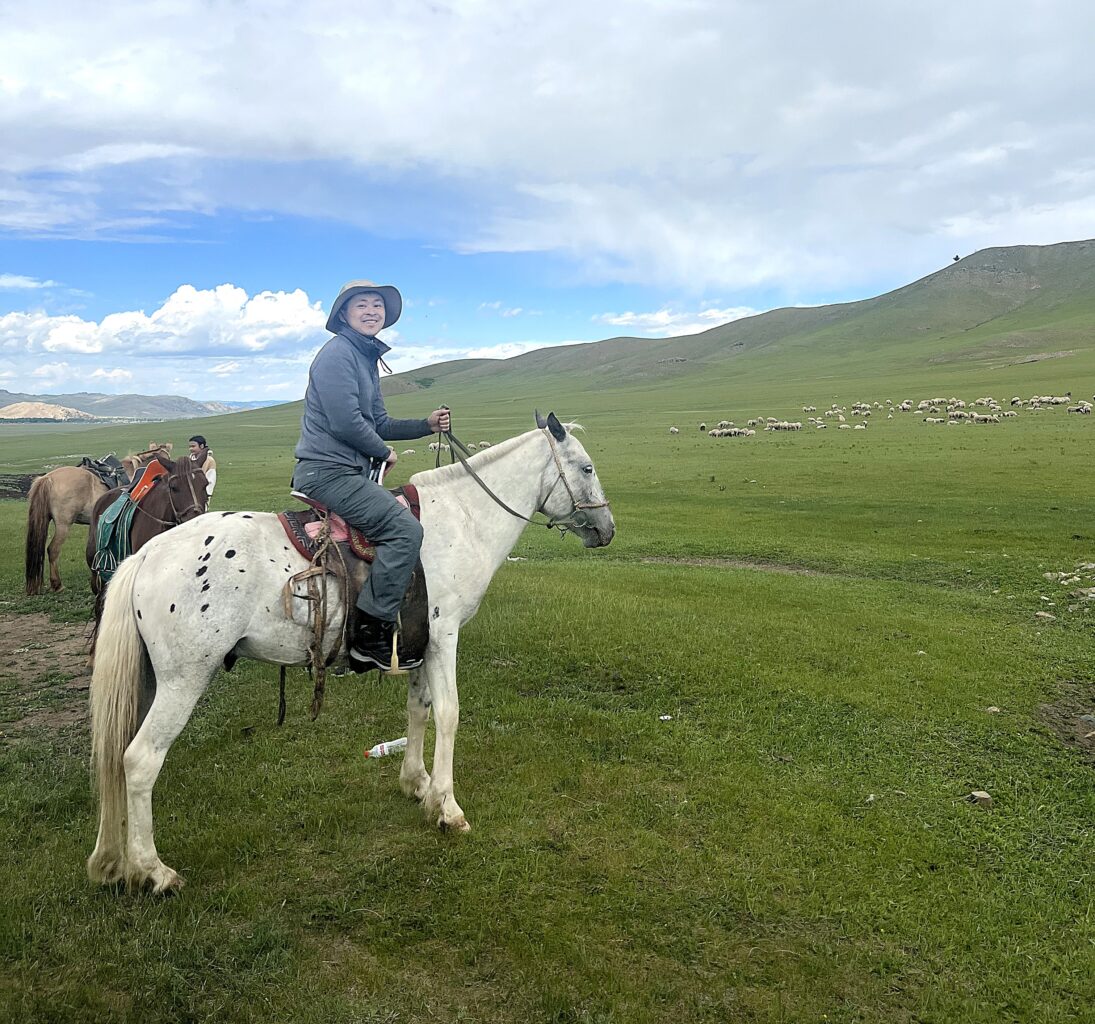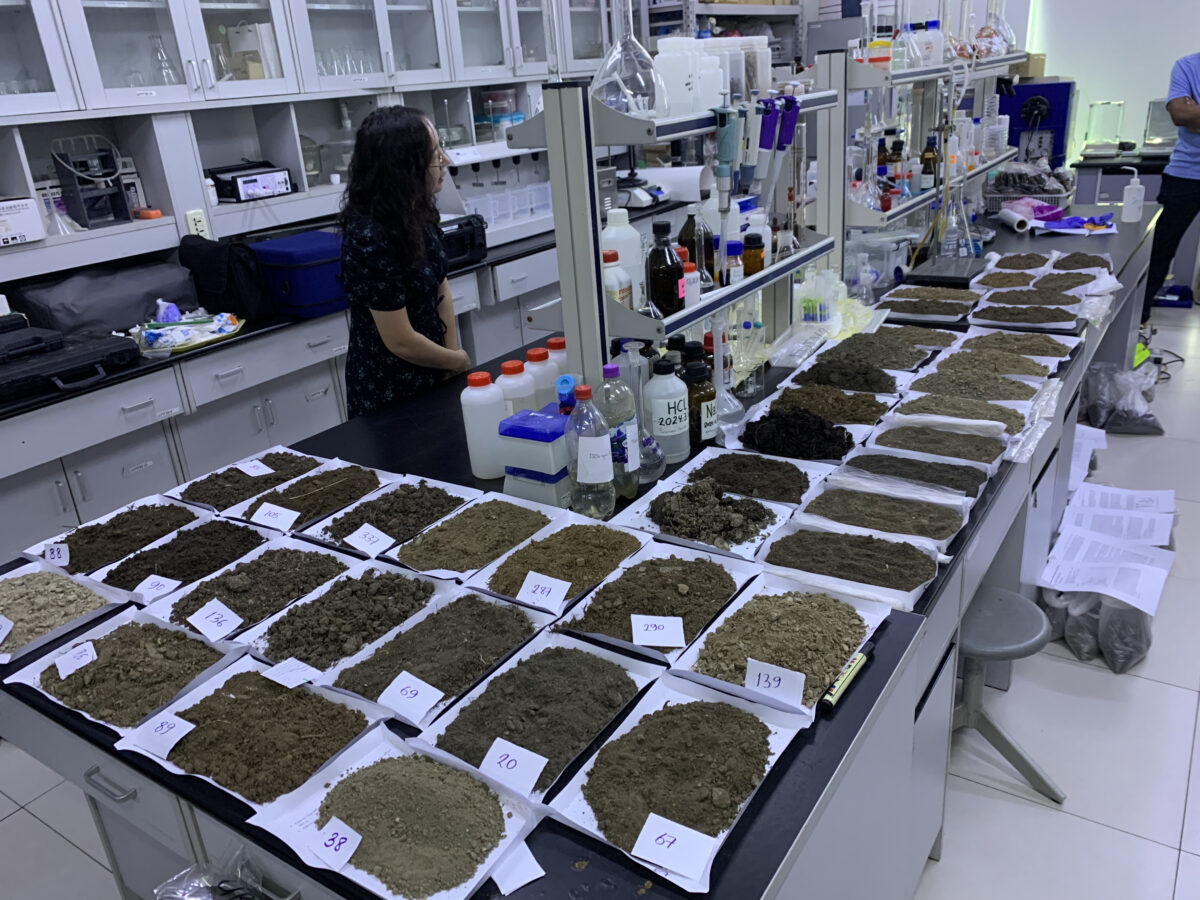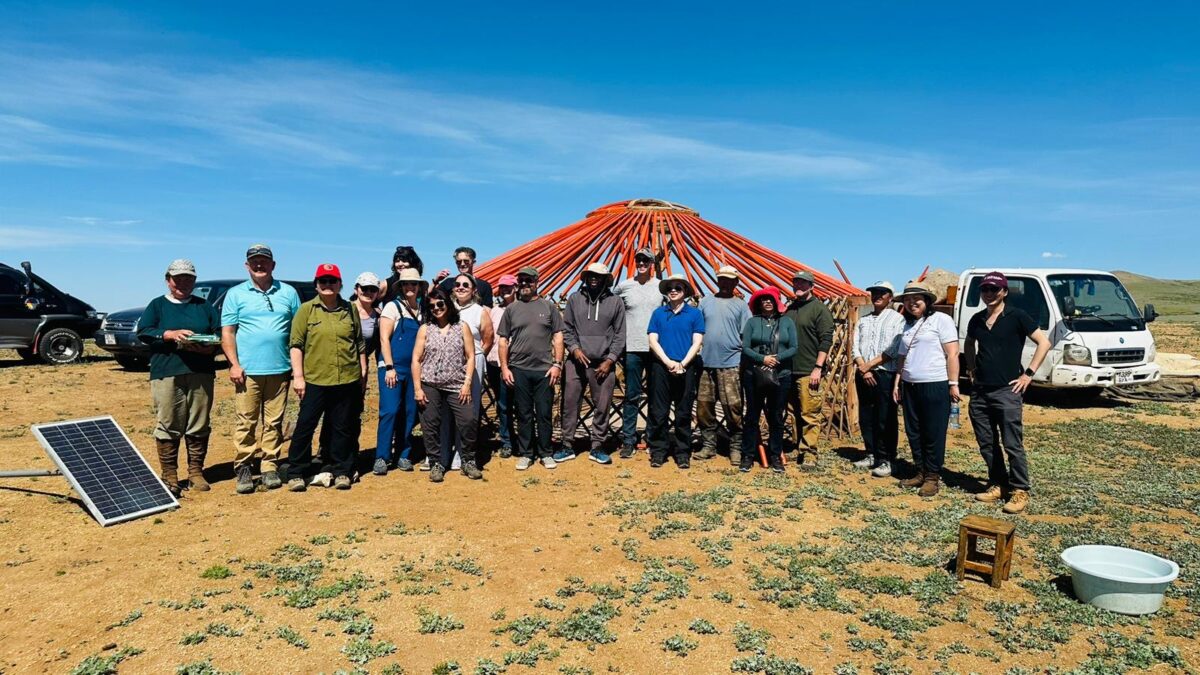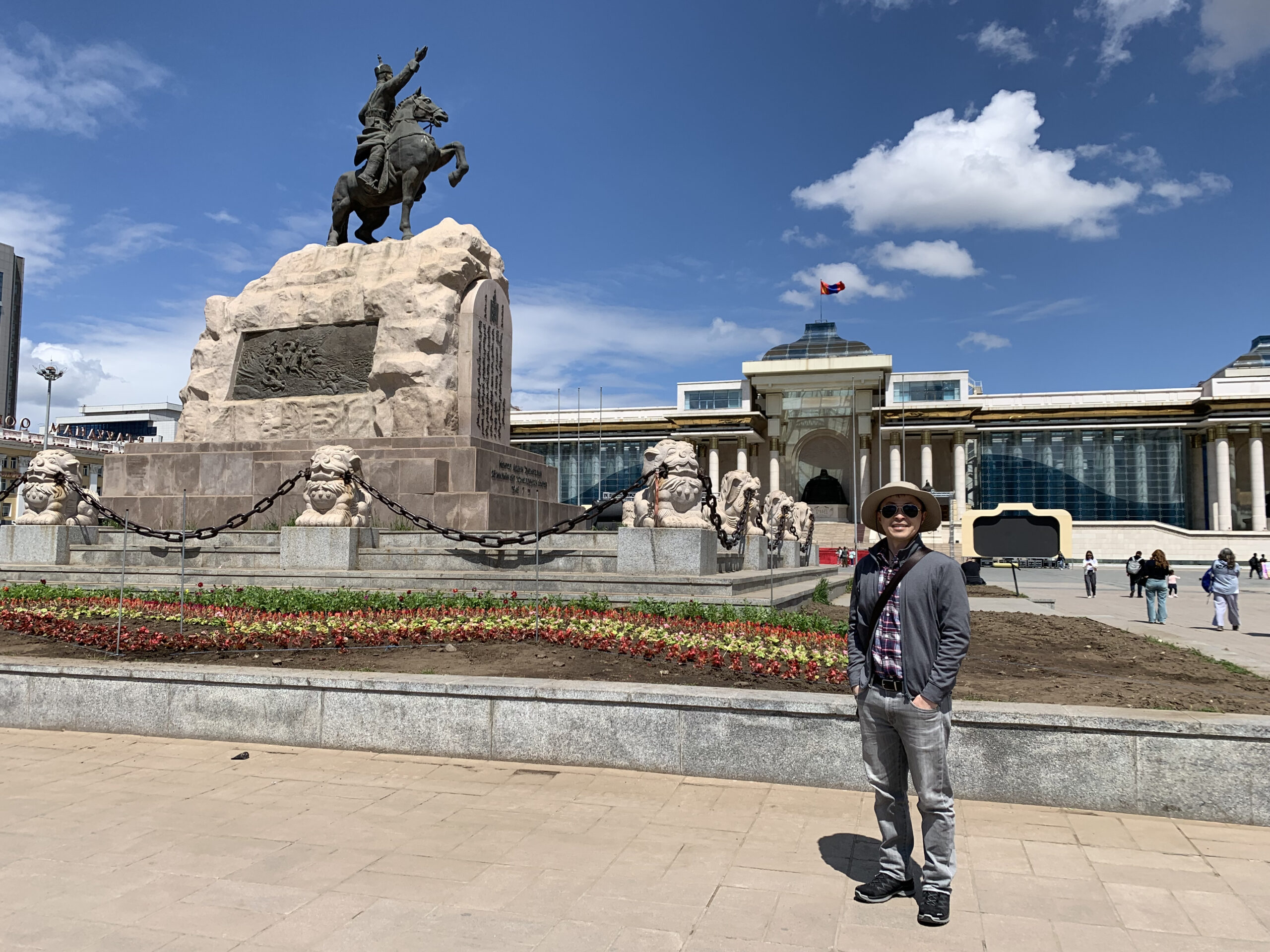Christopher K. Tong, an associate professor of modern languages, linguistics, and intercultural communication, has taught Asian studies for years. This fall, Tong brings a fresh perspective to his classes after spending two weeks in Mongolia as part of an award from the Council of American Overseas Research Centers (CAORC) to participate in the Overseas Faculty Development Seminar: Climate Change and Public Health—What Does Climate Change Mean for the People of Mongolia? Tong used this opportunity to advance research for his forthcoming book on the emergence of modern science and ecological consciousness in Asian and Western societies.
“Despite the grandeur of this country’s history, Mongolia as a modern nation is often understudied in Asian studies. Within China, Mongolians are an ethnic minority struggling to preserve their language and culture,” explains Tong. “Historically, the Mongolian empire stretched from Asia to Europe, so there is intrinsic value to studying Mongolia from a humanistic perspective. It was also interesting to see how present-day Mongolians understand and represent this history, for example, the life and legacy of Genghis Khan.”

CAORC is a private, nonprofit federation of independent overseas research centers that promotes advanced research with an emphasis on the humanities and social sciences, the conservation and recording of cultural heritage, and the understanding and interpretation of modern societies. Tong was one of 44 faculty members from community colleges and minority-serving institutions, like UMBC, placed in one of three seminars that aimed to help faculty and administrators gain first-hand experience needed to develop and improve international courses, curricula, and teaching materials.
Learning from Mongolians
The seminar took place at the American Center for Mongolian Studies (ACMS) in Ulaanbaatar, the capital city of Mongolia. The 14 faculty assigned to the seminar in Mongolia visited Ulaanbaatar; the rural communities at Kharkhorin, the historic capital of the Mongol Empire; Erdene Zuu Monastery—the oldest Buddhist monastery in Mongolia; and Hustai National Park, home to the rare and endangered Przewalski’s horses. They also gained first-hand knowledge of the impact of hotter days, increasing wildfires, storms, colder winters, and drought on Mongolia’s communities and environment.

“It was an eye-opening experience visiting Mongolia—meeting its people and experiencing the landscape. I have read novels and research about Mongolia,” shares Tong, “but visiting in person enriched my understanding and challenged my preconceptions.” He notes that Mongolia’s unusually cold winter this year wiped out entire herds of livestock, the primary source of income for nomadic families. Meanwhile, the use of low-grade coal for heating in Ulaanbaatar has increased air pollution and negatively impacted public health. “The effects of climate change are particularly noticeable to the people of Mongolia.”

The faculty met local officials, health specialists, climate scientists, and nomadic pastoralists to learn about their country and way of life from them. The scholars also assisted a nomadic family in constructing their ger, a traditional Mongolian yurt. These interactions and collaborations helped Tong better understand the Mongolian people’s perspectives on development and its relationship with China and the U.S. “My experience in Mongolia will inform my research in Asian studies and help me connect with Mongolian Americans back in the U.S.,” says Tong. “I’m very grateful that CAORC and ACMS allowed me to visit Mongolia.”
Bringing Mongolia to the classroom
This transformative experience will also benefit UMBC students. Tong has been teaching a course on China’s ethnic minorities, MLLI 335: Modern China: Culture, Society, and Environment, for many years. “A part of the traditional Mongolian homeland is in present-day China, an autonomous region known as Inner Mongolia,” says Tong. He teaches the novel Wolf Totem by Jiang Rong, which tells the story of a student from Beijing who travels to Inner Mongolia to live among the Mongols in the 1960s.
“Of course, the country of Mongolia is different from the Chinese region of Inner Mongolia. The field trip made these differences clear,” says Tong, who will develop new course materials on Mongolia as a modern nation and contextualize it within the broader field of Asian studies.
In addition to the CAORC award, Tong received a 2023 – 2024 short-term residential research fellowship from the American Philosophical Society to conduct research at the society’s library and museum in Philadelphia. During this time, Tong researched the history of evolutionary science in the U.S., including the contributions of Asian and African American scientists. He also helped launch UMBC’s new Mellon-funded Global Asias Initiative. The initiative supports rethinking Asian American issues on campus in a global, diasporic, and collaborative framework through community-engaged, public-facing scholarship, and teaching.
These work and research awards, along with a 2021 Early Career Fellowship in China Studies from the American Council of Learned Societies and a 2018 – 2019 Fulbright U.S. Scholar Program grant to China, have given Tong the time and resources to contribute new research to the field and new approaches to the teaching and learning of Asian studies.
Learn more about UMBC’s Asian Studies program and the Global Asias Initiative.
Tags: Asian studies, CAHSS, CAHSS_research, International, MLLI, Research

